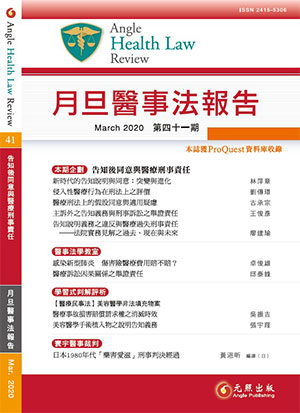日本1980年代「藥害愛滋」刑事判決經過【寰宇醫事裁判】 試閱
Criminal Verdict of "HIV-Tainted Blood scandal" in the 1980s Japan
日本於1980年代因採用帶有愛滋病毒的非加熱血液製劑,造成約1800名血友病患者感染愛滋並死亡,檢方隨後提出公訴追究相關刑事責任。本案被告時任厚生勞動省官員,早在世界衛生組織警告各國應捨棄「非加熱製劑」時,即已提出應盡早核可「加熱製劑」之方針,惟被告卻未就殘留於各醫療機關之非加熱製劑進行回收,以及指示中止販賣該類製劑。法院考量該類製劑之危險性,認為國家有必要作出明確的指示,藥事法既賦予厚生大臣監督權限,在藥務行政上亦有採取必要措施之義務,基於被告所處之職位,難謂被告無責任可言。
In the 1980s Japan, about 1,800 people with hemophilia were infected with AIDS and died because of the use of non-heated blood preparations with HIV. Prosecutors subsequently filed a public prosecution for relevant criminal liability. The defendant at that time was an official of the Ministry of Health, Labour and Welfare. As early as the World Health Organization warned countries to discard “non-heated preparations,” the defendant had already proposed that the “heated preparations” should be approved as soon as possible. However, the defendant didn’t recycle the non-heated preparations remaining in various medical institutions, and didn’t instruct to stop selling such preparations. The court considered the danger of such preparations and held the opinion that it was necessary for the country to give clear instructions. Since the Pharmaceutical Affairs Law have given the supervision authority to the Minister of Health, Labour and Welfare, he had the obligation to take necessary measures in pharmaceutical administration. Based on the position of the defendant, it was difficult to say that the defendant has no responsibility for the case.
120-124






